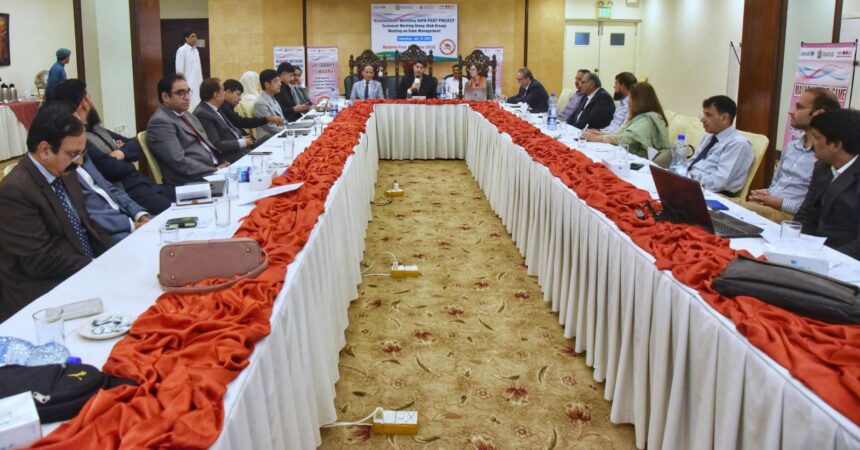Pakistan has successfully concluded its first-ever pilot project for integrating G6PD testing into the national healthcare system, marking a significant advancement in the country’s fight against malaria. Conducted by the Directorate of Malaria Control in collaboration with Medicines for Malaria Venture (MMV) across nine malaria-affected districts, the project demonstrated the effective incorporation of G6PD testing at the primary health care level, paving the way for the adoption of the new malaria drug Tafenoquine. The project’s outcome was presented by Dr. Mukhtar Bharath, Minister of State for Health, who emphasized its strategic importance following a sharp rise in malaria cases after devastating floods.
According to the Ministry of Health spokesperson, representatives from national and international organizations including the World Health Organization (WHO), UNICEF, the Global Fund, and Medicines for Malaria Venture participated in the project review and acknowledged its significant success. The pilot primarily aimed at assessing the practical implementation of glucose-6-phosphate dehydrogenase (G6PD) testing in the routine healthcare system, enabling the effective use of Tafenoquine, a recently introduced antimalarial medication.
Highlighting the relevance of this initiative, Dr. Mukhtar Bharath, Director of the National Malaria Control Program, mentioned that over 2.8 million malaria cases were reported in Pakistan after severe flooding in 2022. This dramatic increase further underscores the urgent need to strengthen malaria detection and treatment strategies, particularly through innovative methods like rapid G6PD testing.
Dr. Mukhtar explained, “The pilot project’s results clearly demonstrate that G6PD testing can be successfully integrated into our primary healthcare structure. We intend to align these results into Pakistan’s national strategic framework immediately.” Furthermore, Dr. Mukhtar noted that Tafenoquine offers a major advantage over the previously used 14-day primaquine therapy, which required a prolonged treatment regimen often abandoned prematurely by many patients.
“In previous malaria treatments with primaquine, the patient had to complete a full 14-day course. Unfortunately, patients often discontinued therapy after two or three days, leading to incomplete recovery and persistent health risks,” explained Dr. Mukhtar. “This challenge of medication adherence has persisted not just in Pakistan but globally.”
Tafenoquine, however, promises better adherence and enhanced effectiveness since it requires fewer doses. Following WHO approval in September of last year, Tafenoquine has been officially registered by Pakistan’s Drug Regulatory Authority (DRAP), making the drug available for broader use in malaria prevention and treatment.
Dr. Mukhtar expressed optimism about malaria elimination possibilities through the success of this pilot, asserting that Pakistan is on track to join a select group of nations rapidly advancing toward malaria elimination. “These promising outcomes allow us to stand confidently alongside those countries that have extensively researched Tafenoquine and begun its widespread utilization,” he said.
Recognizing these advancements, international and local organizations have declared the G6PD pilot project a milestone achievement for Pakistan. As part of its continuing commitment to global malaria eradication initiatives, Pakistan plans to host an international malaria elimination conference, welcoming scientists, health professionals, and delegates from around the world to discuss and integrate best practices in malaria control. According to Dr. Mukhtar, the planned global conference signifies Pakistan’s dedication to contributing actively to the international fight against malaria.











